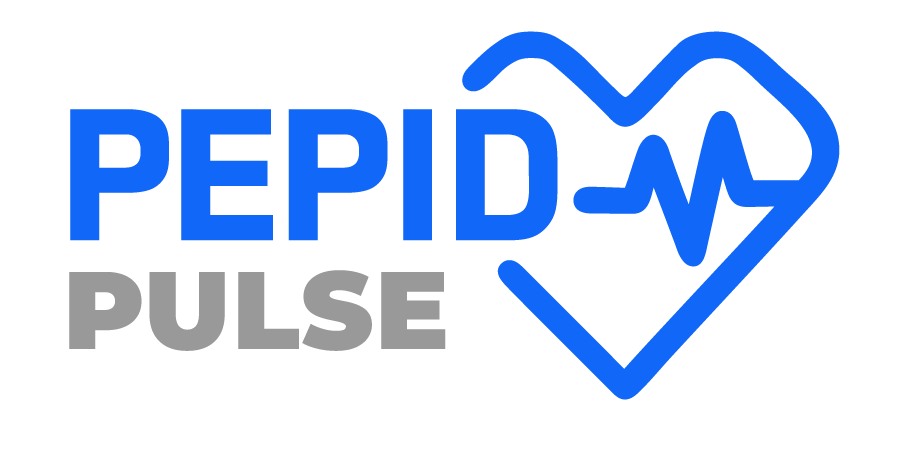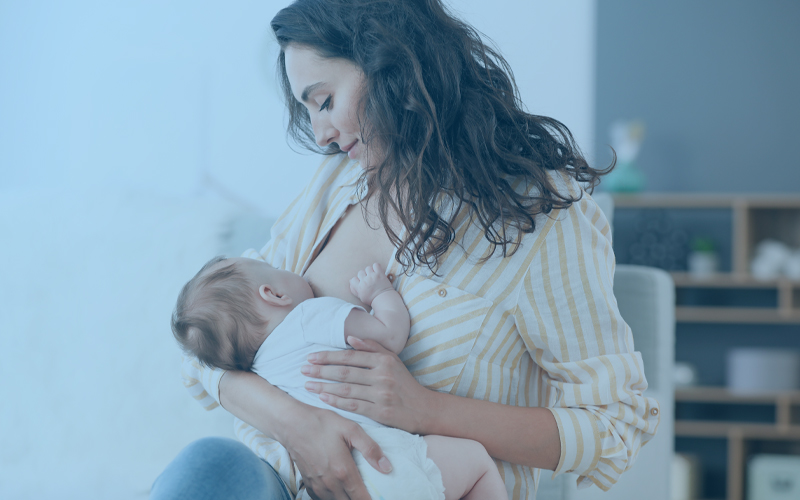National Breastfeeding Month
August is National Breastfeeding Month, highlighting the many benefits of breastfeeding. The COVID-19 pandemic has brought new risk factors for women who are pregnant, or have been recently pregnant including women who chose to breastfeed. This group is more likely to get severely ill with COVID-19 compared to non-pregnant people, making vaccination a key component to protection. However, many women who choose to breastfeed may have concerns about getting the vaccine. What are the benefits? Will there be adverse reactions? What evidence do we have that this is safe for my baby?
The CDC’s Recommendation
Thus far, four studies have investigated breastfeeding women who have received COVID-19 vaccination. Spoiler alert: there were no serious adverse events reported, and all four concluded vaccine-induced anti-SARS-COV-2 antibodies in breast milk that may protect infants from infection.
Despite not having any breastfeeding participants in COVID-19 vaccine clinical trials, the CDC recommends all people over 12 including breastfeeding women, get the COVID-19 vaccine.
Read the latest evidence based, peer-reviewed treatment recommendations for COVID-19 in PEPID’s profession-tailored clinical decision support suites for healthcare providers. Start a 14 day free trial today.
The Four Studies:
The first study was tiny with only 5 participants. Researchers aimed to investigate breastfeeding women who received a COVID-19 vaccination. This report was published in the American Journal of Obstetrics and Gynecology (AGOG) on March 25, 2021. Researchers characterized breast milk levels of anti-SARS-CoV-2 antibodies in lactating women undergoing COVID-19 vaccination. Participants in this study received the Pfizer-BioNTech COVID-19 vaccine.
All five participants provided frozen breast milk samples before vaccinations, within the first 24 hours after vaccination, and the following week after inoculation.
All prevaccine milk samples tested negative for SARS-CoV-2 RNA, meaning they did not have COVID-19 before receiving the vaccine. Researchers found that after receiving the Pfizer COVID-19 vaccination, participant breastmilk demonstrated sustained elevation of SARS-COV-2 antispike IgG/IgA levels.
The takeaway:
The data published in this study suggests a potential immune benefit to infants of lactating people up to 80 days after COVID-19 vaccination but calls for further studies to characterize the length of the antibody production in breast milk and the effect on infant infection rates.
The second study, published March 30, 2021, also in AGOG aimed to evaluate the immunogenicity and reactogenicity of COVID-19 mRNA Vaccines in pregnant and lactating women compared to non-pregnant women and women who contracted COVID-19 during pregnancy.
This study was much larger with 131 reproductive-age vaccine recipient participants. Of those 84 were pregnant, 31 were lactating, and 16 were not pregnant. Researchers quantified titers of SARS-CoV-2 spike and receptor-binding domain IgG/IgA/IgM in the women’s sera and breastmilk. They tested at baseline, at the second dose, 2-6 weeks after the second dose, and at delivery (where they tested umbilical cord sera).
Titers were compared with those of pregnant women 4-12 weeks from natural infection.
The takeaway
This study concluded with three key points:
- mRNA COVID-19 vaccines generated a strong immune response in pregnant and lactating women similar to nonpregnant women.
- Vaccine-induced immune responses were stronger than the response from natural COVID-19 infection.
- And finally, pregnant and lactating women transfer antibodies to newborn infants through the placenta and breastmilk.
A third study published April 12, 2021, in JAMA studied 84 women and 504 milk samples to investigate maternal immunization results in the secretion of SARS-CoV-2 antibodies into breast milk. They also looked for any potential adverse events among women and infants. Participants were breastfeeding women who had chosen to receive the Pfizer-BioNTech vaccine.
Again, breast milk samples were collected before vaccination. Samples were then taken once weekly for 6 weeks starting two weeks after the first dose.
Mean levels of anti-SARS-CoV-2-specific IgA antibodies in breast milk increased rapidly and were significantly elevated at 2 weeks after the first vaccine. IgG antibodies spiked at 4 weeks following the second vaccine shot.
Researchers found robust secretion of SARS-CoV-2-specific IgA and IgG antibodies in breast milk for 6 weeks after vaccination.
These antibodies showed strong neutralizing effects, leading researchers to believe vaccinating breastfeeding women can protect their infants from infection.
As far as adverse events go, no mother or infant experienced any serious adverse event. However, four infants did develop a fever during the study periods 7, 12, 15, and 20 days after maternal vaccination. All of those infants had symptoms of upper respiratory tract infection including cough and congestion. Three of the four’s fevers and symptoms resolved without treatment. While the fourth infant was admitted for neonatal fever evaluation due to his age and was treated with antibiotics.
The takeaway:
COVID-19 vaccinations in pregnant and breastfeeding women provide anti-SARS-CoV-2-specific antibodies in breastmilk, umbilical cord, without serious adverse events to the mother or infant.
The final study thus far was published on May 14, 2021. Researchers studied 32 breastfeeding women who had decided to be vaccinated independent of the study.
Maternal serum and breastmilk were collected four times after the first dose of the vaccine.
Researchers detected anti-SARS-CoV-2 IgG in breast milk. The highest concentrations of serum and breast milk antibodies were observed around day 29 and decreased around day 43.
The takeaway
This study concluded that the immune response to the COVID-19 vaccine is strongest about a week after the second dose, and breastfeeding women may transfer antibodies to their infants after receiving the COVID-19 vaccine.
In Conclusion
All four studies concluded vaccine-induced anti-SARS-COV-2 antibodies were present in breast milk which may protect infants from infection.
Although there is still a lot unknown about the long-term effects of COVID-19 vaccination, the data in these four studies suggest that the benefits of receiving a COVID-19 vaccine outweigh any known or potential risks of vaccination while breastfeeding.



Trackbacks/Pingbacks